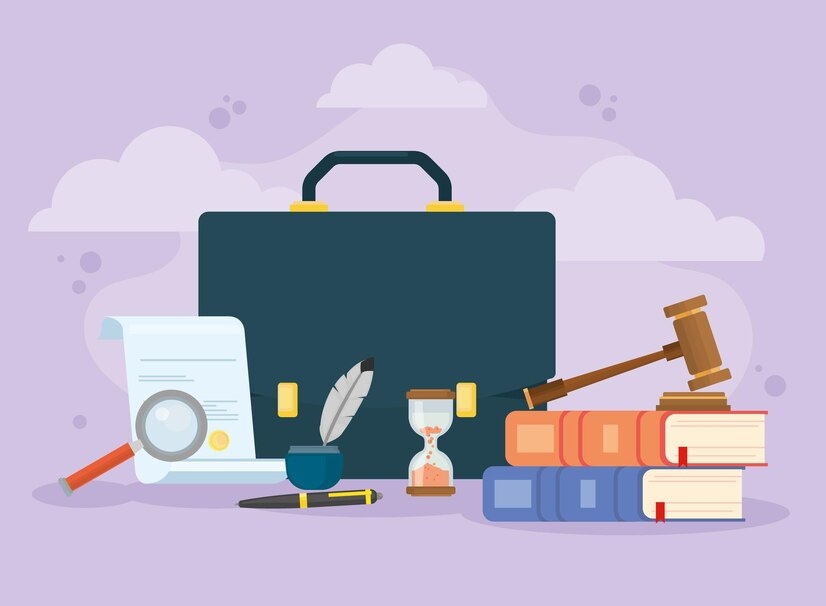Choosing the right lawyer for your legal needs is crucial to achieving the best outcome. Whether you’re dealing with a personal injury, family dispute, criminal charges, or any other legal matter, having the right legal representation can make all the difference. We will help you understand how to choose the best lawyer for your case using simple language and practical tips.
Why Choosing the Right Lawyer Matters
Choosing the right lawyer can greatly impact the outcome of your case. A lawyer with the right skills and experience will navigate the complexities of the legal system on your behalf. This section explains why this decision is so important.
Key Points:
- Expertise: Different lawyers specialize in different areas of law. Choosing a lawyer with expertise in your specific legal issue increases your chances of a favorable outcome.
- Advocacy: A good lawyer will advocate for your rights and interests, ensuring you receive fair treatment under the law.
- Confidence: Knowing you have the right lawyer by your side can give you peace of mind and confidence throughout the legal process.
Types of Lawyers and Their Specializations
Understanding the different types of lawyers and their areas of specialization is the first step in choosing the right one for your case.
| Type of Lawyer | Specialization |
|---|---|
| Personal Injury Lawyer | Handles cases involving physical or psychological injury due to negligence. |
| Family Lawyer | Specializes in family-related issues such as divorce, custody, and support. |
| Criminal Defense Lawyer | Defends individuals charged with criminal activities, from minor offenses to felonies. |
| Real Estate Lawyer | Deals with property-related issues, including transactions, disputes, and zoning laws. |
| Immigration Lawyer | Assists with issues related to visas, residency, and citizenship. |
| Employment Lawyer | Focuses on workplace issues such as discrimination, harassment, and wrongful termination. |
Tips:
- Identify the type of lawyer you need based on your legal issue.
- Consider lawyers who specialize in cases similar to yours for the best results.
Steps to Finding the Right Lawyer
Finding the right lawyer involves a series of steps, from research to consultation.
Step-by-Step Guide:
- Research: Start by searching for lawyers online, checking their websites, and reading reviews.
- Referrals: Ask friends, family, or colleagues for recommendations. Personal referrals are often trustworthy.
- Bar Association: Reach out to your local bar association to obtain a directory of licensed attorneys available in your region.
- Consultations: Schedule consultations with a few lawyers to discuss your case and assess if they’re a good fit.
- Decision: After consultations, compare the lawyers based on your findings and choose the one that best meets your needs.
- Questions to Ask During the Consultation
Asking the right questions in your initial consultation is essential for determining whether a lawyer is the right fit for your case.
| Question | Purpose |
|---|---|
| What is your experience with cases like mine? | To assess the lawyer’s expertise and familiarity with your type of case. |
| How do you communicate with clients? | To understand how the lawyer will keep you updated throughout the case. |
| What are the potential outcomes? | To set realistic expectations about the possible results of your case. |
| How do you structure your fees? | To clarify how much you will be expected to pay and when. |
| Who will handle my case? | To know whether the lawyer you meet with will personally handle your case or delegate it to someone else. |
Tips:
- Prepare a list of questions before your consultation.
- Take notes during the consultation to help you remember the details later.
Evaluating a Lawyer’s Experience and Track Record
When selecting a lawyer, their experience is a crucial factor to consider. This section discusses how to evaluate a lawyer’s experience and track record effectively.
Key Considerations:
- Years of Practice: Lawyers with more years of practice generally have more experience handling complex cases.
- Success Rate: Ask about the lawyer’s success rate in cases similar to yours.
- Client Testimonials: Review testimonials or case studies from previous clients to gauge satisfaction.
- Professional Recognition: Look for any awards, recognitions, or memberships in professional organizations.
Understanding Legal Fees and Costs
Legal fees can differ significantly based on the case’s complexity and the lawyer’s level of experience. This section explains different fee structures and what you can expect.
| Fee Structure | Description |
|---|---|
| Hourly Rate | Charges based on the time spent on your case, billed per hour. |
| Flat Fee | A set fee for specific services, regardless of time spent. |
| Contingency Fee | Lawyer gets paid only if you win the case, usually as a percentage of the settlement. |
| Retainer | An upfront payment to secure the lawyer’s services, often used as a down payment. |
Tips:
- Always ask for a clear explanation of fees before hiring a lawyer.
- Request a written agreement that outlines the fee structure to avoid surprises.
Red Flags to Watch Out For
Not all lawyers are created equal. This section highlights red flags that may indicate a lawyer is not the right fit for your case.
Red Flags:
- Lack of Communication: If a lawyer is difficult to reach or doesn’t respond promptly, it could be a sign of poor service.
- Unclear Fees: Beware of lawyers who are vague about their fees or unwilling to provide a clear fee structure.
- Overpromising: Be cautious of lawyers who guarantee specific outcomes, as this is often unrealistic.
- Negative Reviews: Consistently poor reviews or complaints could indicate issues with the lawyer’s practice.
Role of Communication in the Lawyer-Client Relationship
Effective communication is vital for building a successful lawyer-client relationship. This section explores the importance of clear, consistent communication.
Key Points:
- Regular Updates: Your lawyer should keep you informed about the progress of your case regularly.
- Accessibility: Your lawyer should be accessible for questions and concerns.
- Transparency: Clear communication about the legal process, potential outcomes, and any developments is crucial.
Case Studies: Choosing the Right Lawyer in Different Scenarios
Real-life examples can illustrate the importance of choosing the right lawyer. This section provides case studies that highlight how different scenarios require different legal expertise.
| Scenario | Chosen Lawyer | Outcome |
|---|---|---|
| Personal Injury Case | Personal Injury Specialist | Received full compensation for injuries due to the lawyer’s expertise. |
| Family Law Dispute | Family Law Expert | Achieved a favorable custody arrangement through skilled negotiation. |
| Criminal Defense | Experienced Criminal Defense Lawyer | Successfully reduced charges, avoiding jail time. |
| Real Estate Transaction | Real Estate Lawyer | Ensured a smooth transaction with no legal complications. |
Lessons Learned:
- Finding the right lawyer who specializes in your specific legal issue is crucial for obtaining the best possible outcome.
- Specialized lawyers bring a deeper understanding and more effective strategies to their cases.
Final Tips and Considerations
Choosing the right lawyer is a critical decision that requires careful thought. This final section offers additional tips to help you make the best choice.
Tips:
- Trust Your Instincts: If something doesn’t feel right, it may be best to continue your search.
- Take Your Time: Don’t rush the decision; make sure you’ve thoroughly considered your options.
- Ask for Clarifications: If you’re unsure about any aspect of the lawyer’s services or your case, don’t hesitate to ask for more information.
- Review All Documents Carefully: Before signing any agreements, make sure you fully understand the terms.
Conclusion
Choosing the right lawyer is one of the most important decisions you can make when facing legal issues. By following the steps outlined in this guide, asking the right questions, and paying attention to key details, you can find a lawyer who will effectively represent your interests and help you achieve the best possible outcome.

